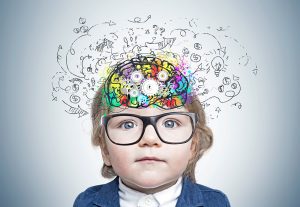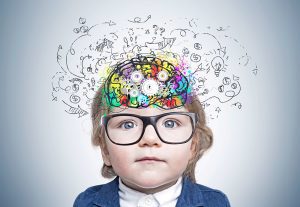Understanding a child's brain development
Repeated studies show a child's early years set the foundation for a healthy and prosperous life including a child's ability to learn in school. A child's brain triples in size during their first year of life. Brain research has impacted what we think about child development and it could impact how we parent.
Key findings about brain development
 A child’s brain is forming synapses at a faster speed than at any other period of their life. This allows them to learn more quickly (versus adults).
A child’s brain is forming synapses at a faster speed than at any other period of their life. This allows them to learn more quickly (versus adults).- Good nutrition is necessary for a child's brain to run properly.
- The more often an experience happens, the stronger the brain connections. Positive repeated experiences also increase a child's confidence.
- The brain naturally removes connections that are not used often, which enables the brain to work faster.
- When a child is exposed to stress and trauma, it can have negative long-term effects on their brain. These stressors include violence, neglect and poverty.
Born to learn
Children are born to learn and you are your child’s first teacher. Here are some ideas to help you support your child's brain development:
 Read with your child.
Read with your child.- Create routines (bedtime, mealtime, etc.)
- Take turns when talking with your child so it's a conversation.
- Encourage a healthy active lifestyle.
- Provide hands-on experiences.
- Pique your child’s curiosity by exposing them to new ideas and places.
- Be creative and explore the arts (dance, music, poetry, drawing, painting and more).
Learn more about early brain development from the CDC and the books below.
loading...











